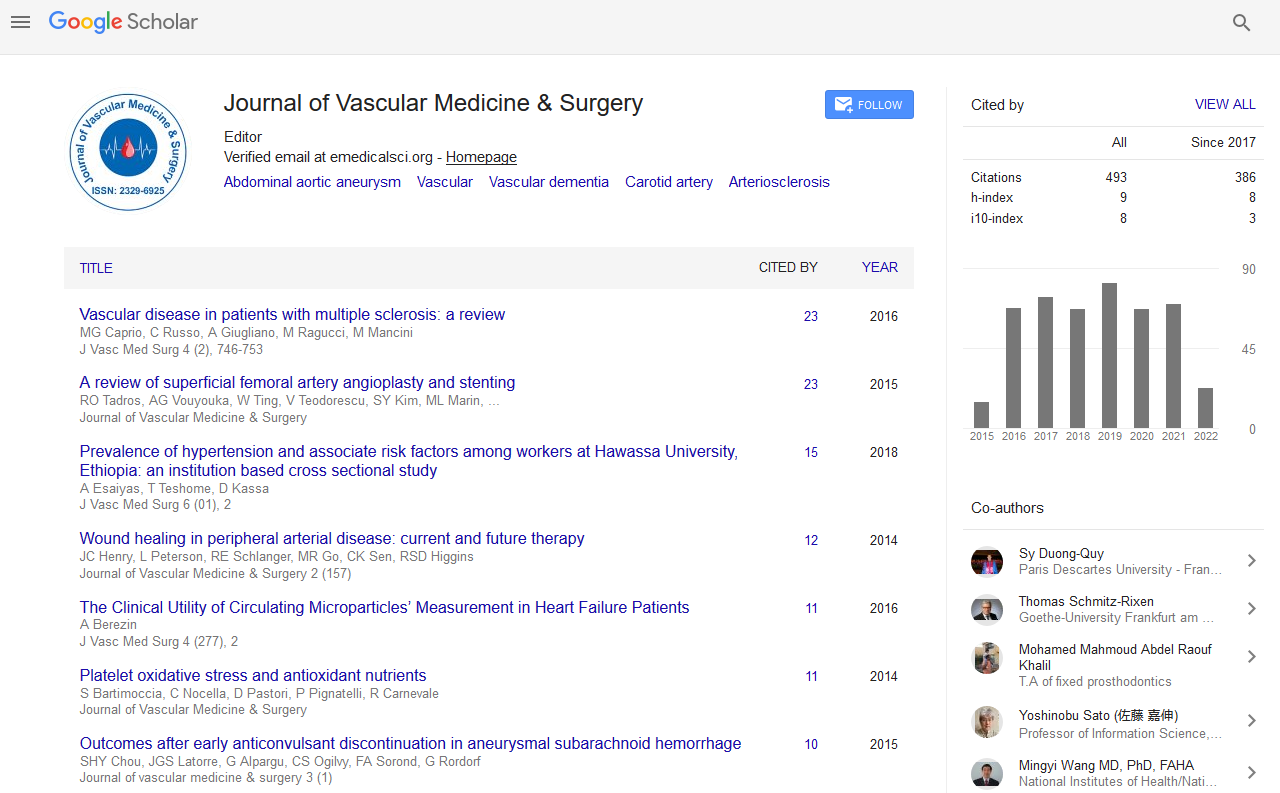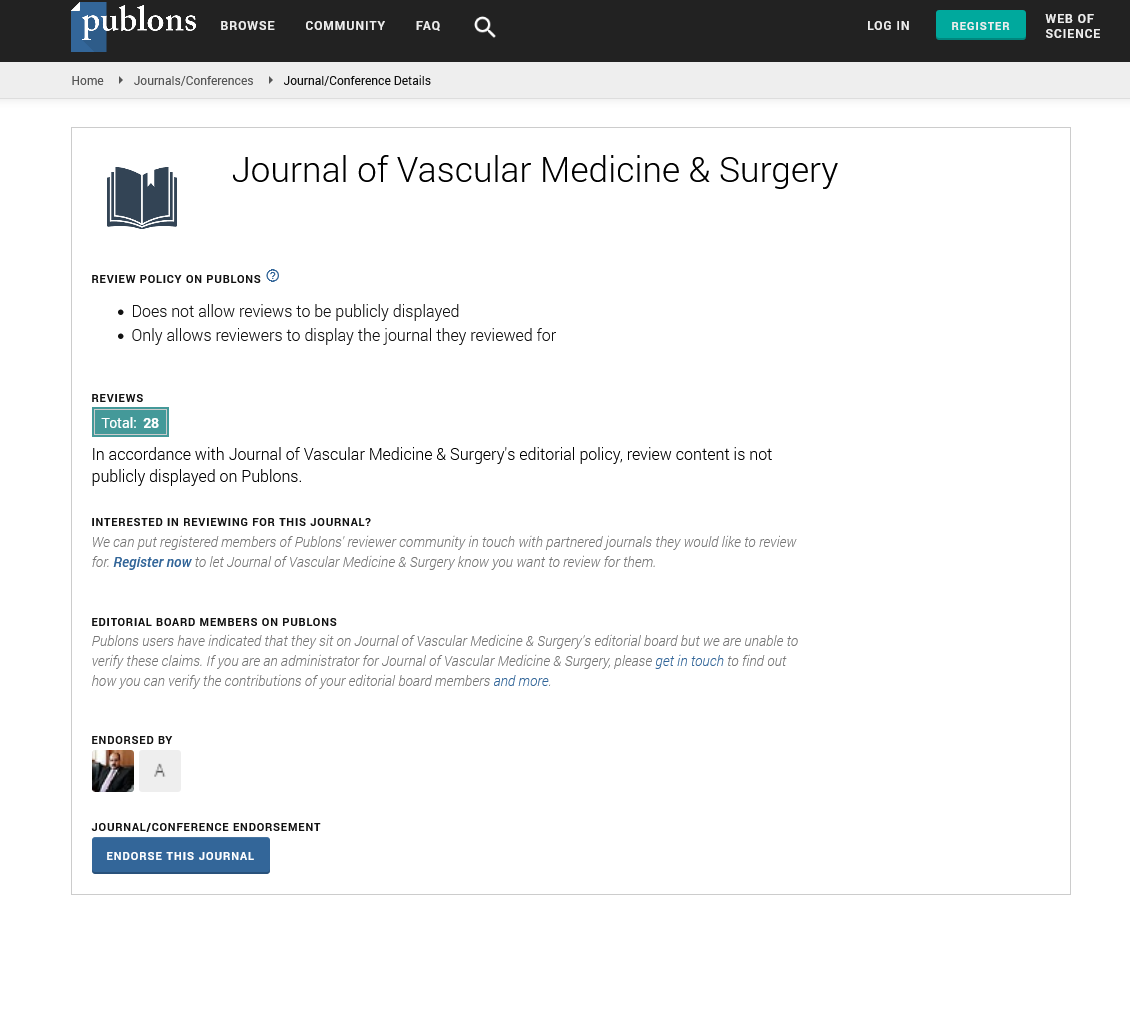Indexed In
- Open J Gate
- Academic Keys
- RefSeek
- Hamdard University
- EBSCO A-Z
- OCLC- WorldCat
- Publons
- Euro Pub
- Google Scholar
Useful Links
Share This Page
Journal Flyer

Open Access Journals
- Agri and Aquaculture
- Biochemistry
- Bioinformatics & Systems Biology
- Business & Management
- Chemistry
- Clinical Sciences
- Engineering
- Food & Nutrition
- General Science
- Genetics & Molecular Biology
- Immunology & Microbiology
- Medical Sciences
- Neuroscience & Psychology
- Nursing & Health Care
- Pharmaceutical Sciences
Abstract
CKD-EPI is a Better Tool for Detecting Renal Dysfunction in Hypertensive Pregnancy: A Case-Control Study in Ghana
Linda Ahenkorah Fondjo, Owiredu WKBA, Samuel Asamoah Sakyi, Christian Obirikorang, Daniel Wilfred and Richard KD Ephraim
Background: Pregnant women with hypertension are at an increased risk of renal impairment. This study assessed the use of CKD-EPI and 4v-MDRD for early diagnosis of renal impairment in pregnant women with hypertension. Methods: This case-control study was conducted at Suntreso Government Hospital Kumasi, Ghana. In all, 220 pregnant women were recruited, 84 had Gestational Hypertension, 36 had Preeclampsia, with 100 normotensive pregnant women as controls. Structured Questionnaires were used to obtain socio-demographic and clinical information. 4 mL of venous blood was collected for estimation of electrolytes, urea, creatinine and uric acid; urine was collected for estimation of protein using dipstick. The Chronic Kidney Disease Epidemiology Collaboration (CKD-EPI) and Modification of Diet in Renal Disease (MDRD-4) equations were used to assess and classify renal impairments. Results: Prevalence of renal impairment using CKD-EPI and MDRD-4 was 4.1% and 0.5% respectively. CKDEPI identified 22.2% of women with preeclampsia as having renal impairment whereas MDRD-4 identified 2.8%. Using CKD-EPI and MDRD-4, eGFR was significantly higher in the controls compared to the cases, (p<0.001). Sodium, chloride, urea, creatinine, uric acid was significantly increased in the hypertensive women. Conclusion: Renal impairment is common in hypertensive pregnant women. CKD-EPI is better equation in early detection of renal impairment in pregnant women and should be adopted as the tool for assessing renal dysfunction during routine antenatal examinations to prevent end-stage renal diseases.


